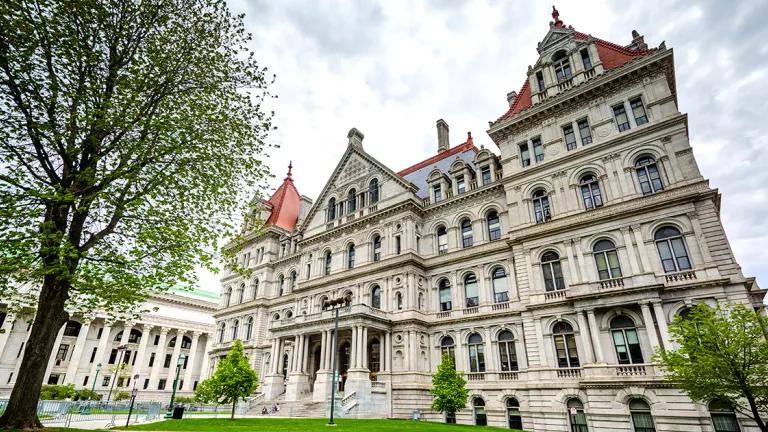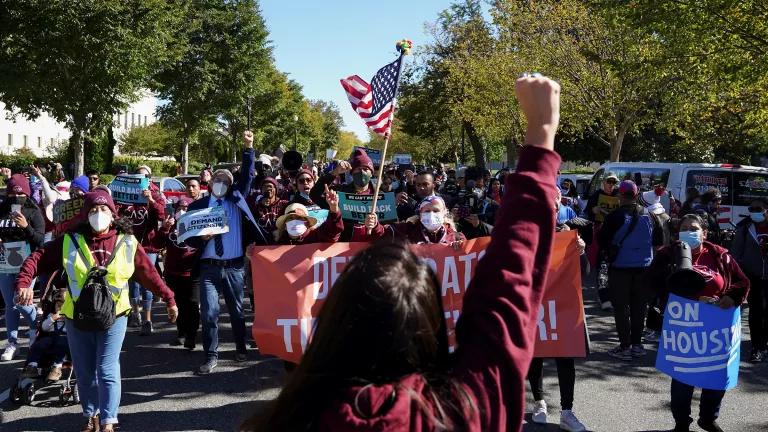Colorado: Reduce Emissions, Increase Environmental Justice
A new bill, SB21-200, aims to translate climate goals into reality one step at a time.

It’s been nearly two years since Colorado legislators passed HB-1261, a landmark climate bill that put in place Colorado’s greenhouse gas (GHG) reduction targets of 26% by 2025, 50% by 2030, and 90% by 2050. In those two years, we’ve seen catastrophic wildfires, droughts, racial justice movements, challenges to our democracy, and a global pandemic. We’ve seen dark skies marked by industrial air pollution and darker moments marked by hate, illness, and death. More than hope and nice words, people need action. We don’t want to be told where we’re going to end up; we want to be part of the planning process to decide how we’re going to get there. A new bill introduced by Senators Winter and Moreno and Representative Jackson, SB21-200, aims to do just that by translating climate goals into reality one step at a time.
While Governor Polis and his team released the Greenhouse Gas Pollution Reduction Roadmap (Roadmap) in January, many clean energy and climate justice advocates still feel anxious about the near term plan to ensure appropriate action and accountability. That’s where SB21-200 comes in. It puts in place more structure, authority, and deadlines while leaving plenty of room for each industry to innovate and create the solutions that work best for them. The bill is made up of four main components:
- A series of rulemakings with clear deadlines at the Air Quality Control Commission (AQCC) to adopt regulations to meet goals for the electricity, oil and gas, transportation, and building sectors, as outlined by the State’s existing Roadmap;
- Electric sector provisions solidifying plans of at least 80% emissions reductions by 2030 and 100% emissions reductions by 2040, ensuring emission reductions are only claimed once, and maximizing near term reductions;
- Environmental justice staff and improved processes to better engage disproportionately impacted communities and strive for climate policies that bring community benefits and justice; and
- A new funding stream by requiring emitters to pay fees on GHG emissions--the same annual fees they currently pay for other types of harmful air pollutants.
Through SB21-200, Colorado can take one big step closer to certainty and equity when it comes to climate action. That’s one step closer to fresher air, improved health, a clean energy economy, and restorative justice. A step away from the dark parts of our past; a step toward a brighter future.




